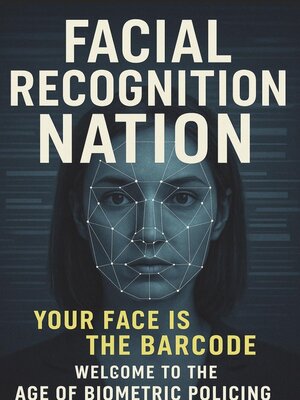
Sign up to save your library
With an OverDrive account, you can save your favorite libraries for at-a-glance information about availability. Find out more about OverDrive accounts.
Find this title in Libby, the library reading app by OverDrive.



Search for a digital library with this title
Title found at these libraries:
| Library Name | Distance |
|---|---|
| Loading... |
The concept of privacy is undergoing a radical transformation due to the rise of facial recognition technology, as explored in "Facial Recognition Nation," which examines the implications of this technology on society. Our faces have become the newest barcodes, unlocking services while simultaneously raising significant privacy concerns. Originating in the mid-20th century, facial recognition technology has evolved from a science fiction concept to a tool commonly used by law enforcement and businesses. Its widespread adoption raises critical questions about privacy, consent, and potential misuse, as cameras equipped with facial recognition algorithms analyze faces in various public settings, collecting biometric data on a large scale. This surveillance extends beyond merely identifying criminals and has profound implications for personal freedom, as the technology often leads to misidentifications that disproportionately affect minority communities. The commercial use of biometric data in public spaces introduces additional challenges, with personalized advertising and consumer tracking raising concerns about data commodification. While law enforcement and immigration agencies utilize facial recognition for safety and efficiency, the rapid proliferation of this technology necessitates urgent discussions about privacy and consent, especially given the growing concerns about its reliability across different demographics. The debate highlights the tension between innovation and individual rights; although success stories demonstrate its potential to enhance security, such as the implementation of biometric exit technology in airports and similar initiatives in the European Union, privacy concerns and data protection issues remain paramount. Furthermore, the use of facial recognition in law enforcement raises alarms about wrongful arrests and the risk of mass surveillance, particularly in authoritarian regimes. Currently, legal frameworks surrounding this technology are often inconsistent and filled with loopholes, leading to potential privacy violations and erosion of civil liberties. The ethical implications of biometric surveillance challenge our perceptions of consent and autonomy, suggesting that as the future of facial recognition technology promises advancements, it also demands careful ethical considerations. Collaboration among technologists, policymakers, and civil society is crucial for its responsible development, ultimately requiring us to weigh the convenience of facial recognition against the costs to privacy and freedom.







